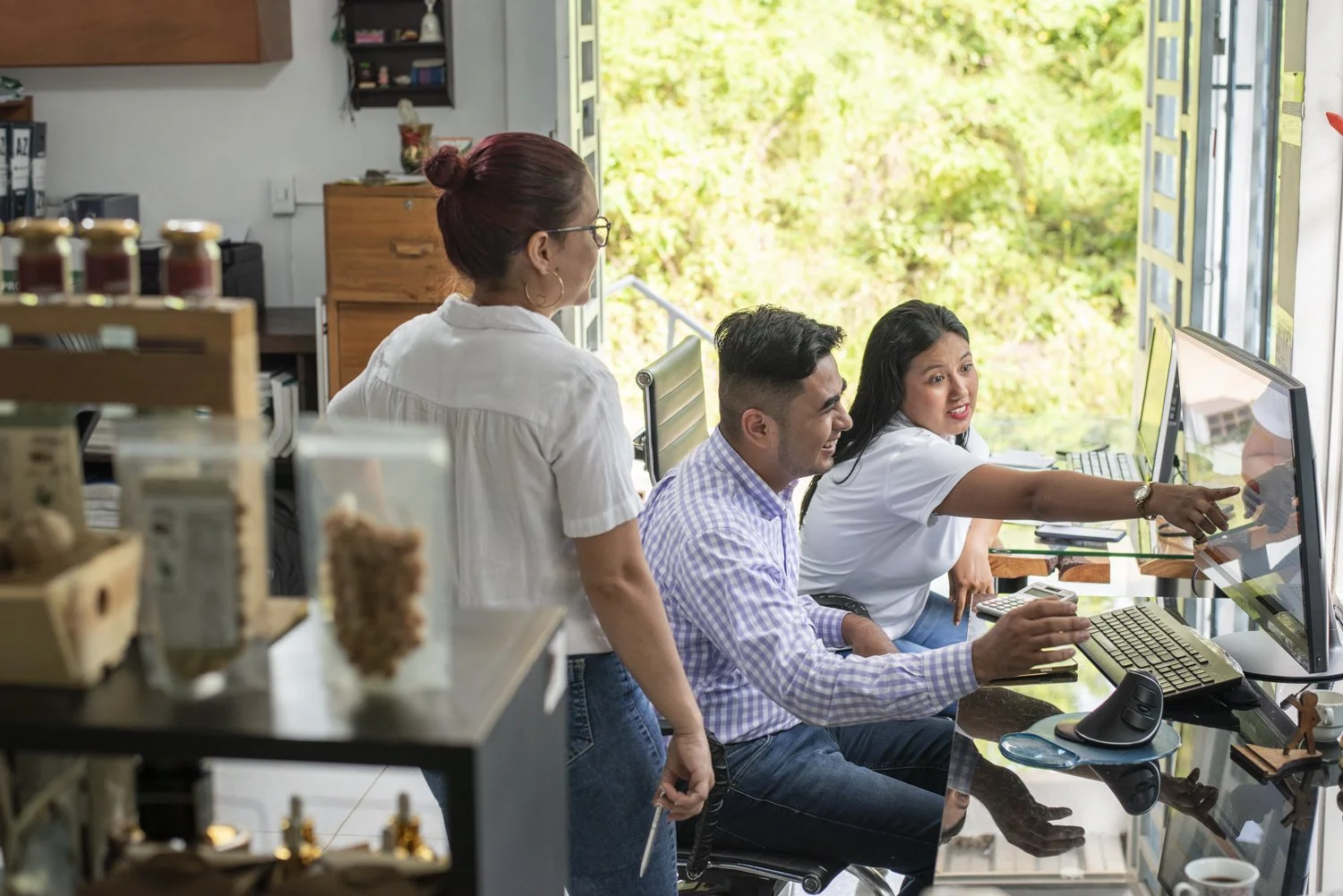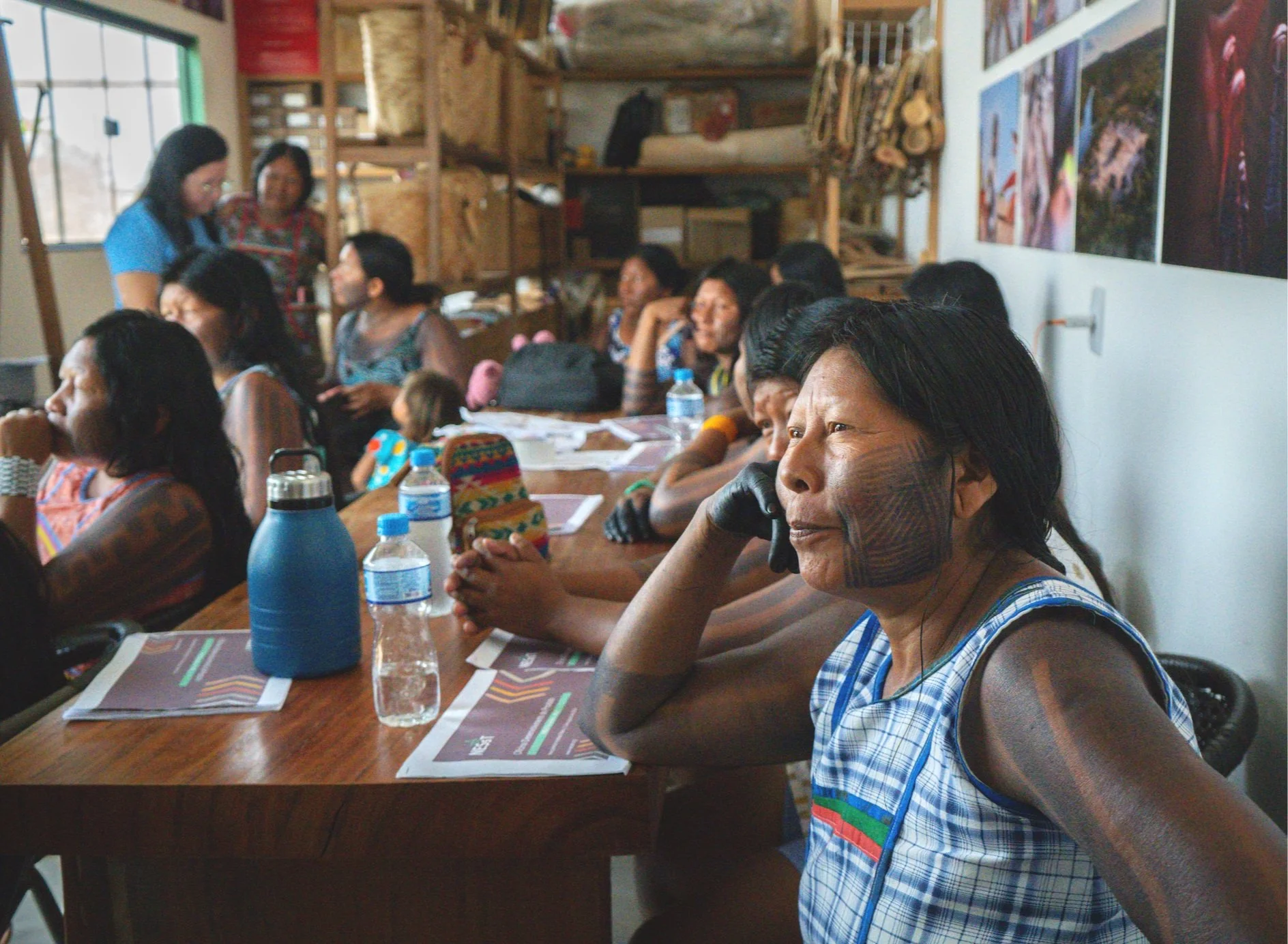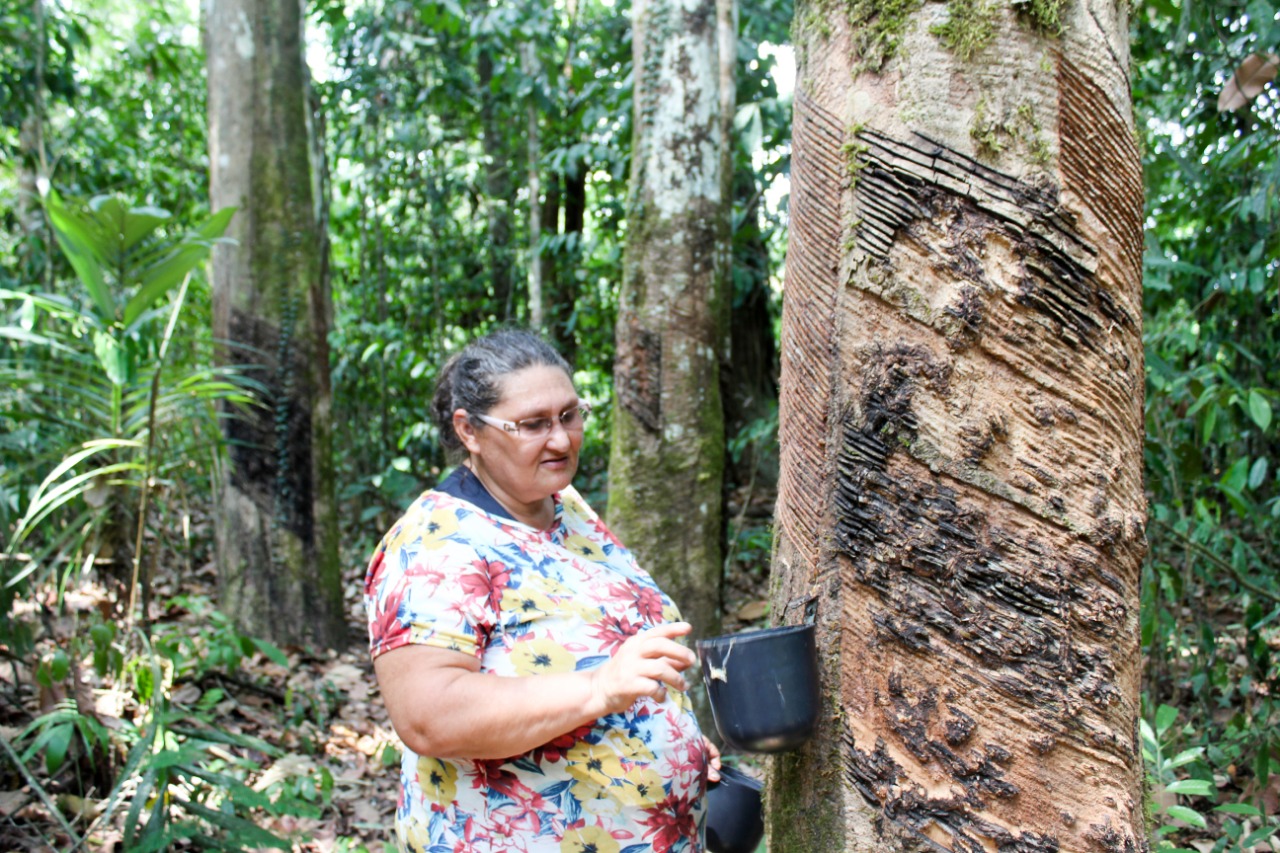For many Black people in Brazil, entrepreneurship has been less a choice and more a response to the barriers imposed by the formal job market. Faced with job informality, unemployment, and the lack of secure employment opportunities with decent work conditions, thousands turn to entrepreneurship as an alternative source of income. Yet even when born of necessity, many of these businesses have proven to be powerful pathways to autonomy, identity, and social and economic transformation.
According to data from Sebrae, Black and Brown individuals currently make up 52% of entrepreneurs in Brazil, totaling around 15.2 million people. This number grew by 28% between 2012 and 2023, highlighting both the strength of this movement and the urgent need to create structural conditions that support its growth. These numbers underscore the need for initiatives that not only acknowledge the central role of these entrepreneurs, but also actively support the sustainability of their efforts.
Photos: Left: Delivery drive for the social business Trampay. Right: Headquarters of the Casa das Mulheres da Maré (House of Women of Maré).
Despite this growth, deep inequalities hinder the potential of these businesses. Most operate with limited resources due to low levels of education, insufficient working capital, and restricted access to credit and training. According to Sebrae, 77.6% of Black entrepreneurs earn no more than two minimum wages per month, and 45.1% have only a basic education. These factors — combined with high rates of job informality and limited social security contributions — undermine the resilience of these ventures and make it harder for them to build long-term stability.
These inequalities became even more pronounced during the COVID-19 pandemic. Black small business owners were among the hardest hit, facing greater revenue losses and more difficulties in accessing emergency credit lines. Sebrae’s 14th survey on the impact of the pandemic on small businesses revealed that recovery has been slower for Black entrepreneurs, directly affecting their personal finances and the survival of their enterprises.
In response, recent years have seen efforts to strengthen Black entrepreneurship gain momentum. The concept of "Black money" — which encourages the circulation of financial resources within the Black community — has gained visibility. Alongside this, initiatives that provide training and technical support are helping businesses to grow while boosting their founders’ confidence. In this context, financial education is key. Knowing how to price products accurately, keep personal and business expenses separate, manage cash flow, and plan investments is essential for a business to survive and thrive in the long run.
NESsT Brazil works strategically within this context to advance racial equity by supporting impact-driven businesses led by Black entrepreneurs. Through its Racial Equity Initiative, it provides financing, mentorship, and business support to companies that are both Black led and create positive, direct impact in underserved Black communities. Its goal is to increase access to capital, promote job and income growth, and fuel business expansion.
Nayana Cambraia, NESsT Brazil’s Portfolio Manager, emphasizes that fostering social justice in Brazil means reducing reducing structural inequalities, ensuring access to basic rights, and creating real opportunities for all individuals, regardless of their background. In this context, racial justice is, in her view, a fundamental pillar. “When we talk about impact investing for racial equity, we’re talking about giving people the chance to live fully, giving them the ability to dream. And the ability to dream makes all the difference,” she says.
““(...) we’re talking about giving people the chance to live fully, giving them the ability to dream. And the ability to dream makes all the difference.”
NESsT’s approach directly challenges the logic of the traditional financial system, which has long favored those with existing capital, formal guarantees, and access to powerful networks. In this system, Black and marginalized communities are often labeled as “high risk”—not because of a lack of potential, but because of criteria that reinforce structural inequality. By investing in Black-led businesses working for social transformation, NESsT challenges this paradigm and proposes a new way of allocating resources guided by impact potential and a commitment to repairing historical inequalities.
Among the enterprises supported by NESsT in Brazil are Maré de Sabores and Trampay. Maré de Sabores was founded in 2010 in the Complexo da Maré, a slum complex in Rio de Janeiro. Maré de Sabores provides job opportunities and culinary training to women from marginalized communities — approximately 55% of whom are Black or Brown. Maré de Sabores runs catering and culinary services, hiring people from the Maré community and supporting them to earn an income, build financial independence, and foster local knowledge. Beyond income from catering and meal sales, women receive support to plan their own business ventures, organize their personal and professional finances, and develop sustainability strategies.
"Early on, we realized we needed to offer more than just technical skills. So, we included training in politics and gender so women could understand their role in society and feel empowered to generate their own income and lead businesses. This is a place of power, and many women didn’t see themselves here. We also focus on teaching women how to manage their ventures and handle finances, which has proven fundamental to supporting them to feel freer to choose their own paths,” explains Mariana Aleixo, co-founder of Maré de Sabores.
Over the past decade, the business has trained around 1,400 women, many of whom have gone on to start businesses or significantly improve their living conditions through the knowledge they acquired.
Elma Ashar, who trained with Maré de Sabores, is now one of its culinary instructors. Although she had previously studied gastronomy, it was through Maré de Sabores that she learned how to turn her skills into a business. “Today, I’m a pastry chef and own my own company. I’ve become a role model for other women in my community, and I’m very proud of that. I tell them that if they keep going, they can gain the independence I have. I wouldn’t trade my business for any job,” she says.
““Today, I’m a pastry chef and own my own company. (...) I tell [other women] that if they keep going, they can gain the independence I have. I wouldn’t trade my business for any job.” ”
Trampay is a fintech that provides financial solutions tailored to app-based workers and freelancers—many of whom are Black and excluded from traditional banking services. The startup was born from the founder’s personal experiences with financial exclusion. “I grew up seeing firsthand what it’s like to live on the margins of the financial system,” says Jorge Junior, CEO of Trampay.
Today, the company offers services such as advance payment on receivables, pre-approved credit cards, financing for motorcycles and e-bikes, and affordable insurance. Its solutions also build financial education into the user experience through accessible and direct language.
“There’s no use handing out bank manuals to people who’ve always been rejected by the system. We practice radical empathy,” Jorge says.
Left: Outreach activity by Trampay. Middle: Trampay station for delivery drivers. Right: Trampay CEO Jorge Júnior (middle) with two of Trampay’s users.
Despite the challenges, Trampay’s experience shows that it’s possible to break down barriers to financial access. The fintech is experimenting with new ways to assess risk and creditworthiness that recognize work and income as a valuable indicator.
“While some lenders require real estate as collateral, we believe work is a form of wealth. It’s what shows an applicant’s reliability and creditworthiness,” Jorge says.
This strategic perspective — shaped by the lived experiences of the entrepreneurs themselves — shows that it’s truly possible to democratize access to capital. When asked about his vision for the future, Jorge is clear: he wants to transform how the financial market works and bring it closer to the people who drive the economy, yet are overlooked by it.
While major challenges remain, the growth of initiatives like Maré de Sabores and Trampay shows that it is possible to build pathways toward equity through entrepreneurship. The key to this lies in democratizing financial knowledge; equipping Black entrepreneurs with the skills to not only to launch their ventures but also to grow, compete, and thrive is one of the most effective ways to combat structural racism and drive economic justice in Brazil. The transformation has already begun—and the entrepreneurs themselves are leading the way.





































